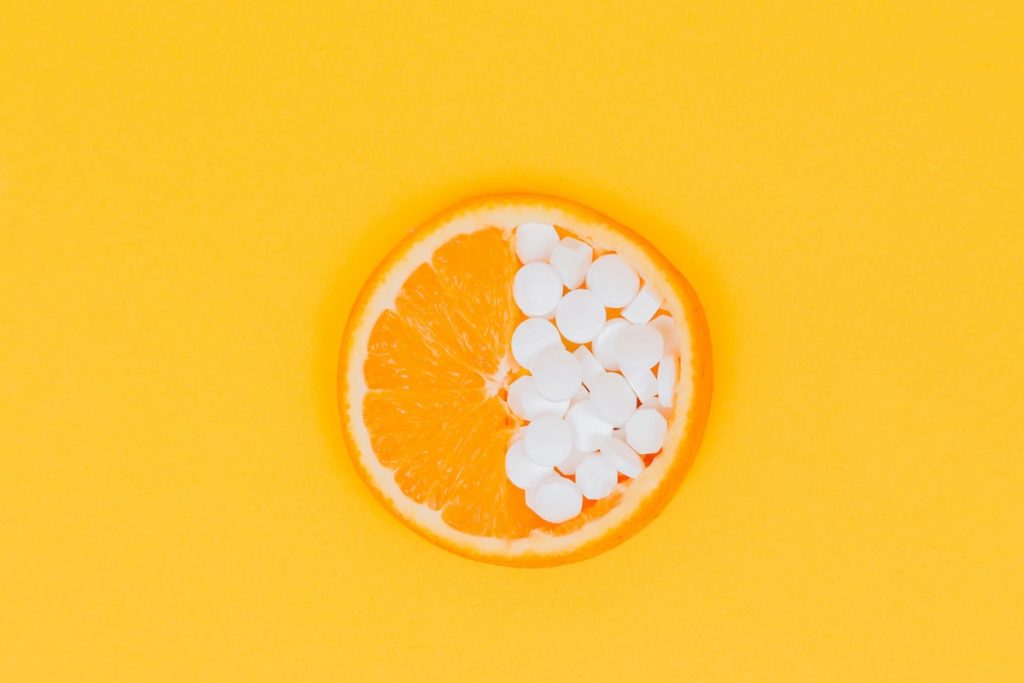Being a dancer is hard, physical work. There are many hours of practice as well as extended cooldown and recovery times required to get in, and stay in, top shape. In a very real sense, dance is an athletic pursuit, and dancers are basically athletes. And while science is always improving, there are plenty of studies that suggest supplements are beneficial for athletic people. Here’s a quick rundown on some of the better options out there.
Eating and Sleeping

First things first. Nothing comes close to substituting for the most basic tools which humans have in their natural, evolutionary kit to achieve peak performance. We’re talking about good nutrition and rest. There really aren’t any shortcuts here. You are going to want to consume enough calories to fuel the immense amount of activity that comes with dance, and you are going to want those calories to come from clean sources. This means good, whole foods (grains, vegetables, fruit, lean proteins) with minimal processing which are eaten in appropriate intervals to keep you from crashing. Forget about three large meals a day: Try pacing yourself out with more frequent, smaller meals which are built around complex carbohydrates like brown rice.
Similarly, get a good night’s sleep. Put down those screens an hour before bed, and make sure that you get at least seven hours of zzz’s every night, as often as you can. Avoid stimulants and alcohol before bed. Your body needs sleep to repair itself after a day of intense movement.
Water is Life

If you are dancing, you are sweating. And the more you sweat, the more you need to make sure that your hydration levels are on point. Dehydration isn’t just dangerous, it’s painful. One of the most consistent injuries which dancers suffer is muscle cramping, which is often caused by a lack of hydration. You should begin your day with at least one 16 oz glass of water. And if you like a cup of something hot in the morning, the glass of water should be consumed before your coffee or tea.
Speaking of caffeine, it can be a great stimulant aid to help keep you focused with good energy levels, but don’t overdo it. If you choose to take a commercial pre-workout, pay close attention to the amount of caffeine on the label. An 8 oz cup of coffee contains about 100 mg of caffeine. Try to keep your pre-workout intake to about 100-200 mg, or two cups of coffee worth of caffeine. That’s a good metric for a pre-dance workout if you want to avoid serious side effects like dizziness or a rapid pulse. Know your limits.
Sports drinks like Gatorade or Powerade can be helpful in maintaining and replacing essential lost electrolytes, but watch out for the sugar. It’s perfectly fine to water a sports drink down to keep your sugar levels from skyrocketing and causing an energy crash later. There are also electrolyte packets out there which can be easily added to a water bottle. It’s also a good idea to explore less sugary options for hydration, like coconut water, seltzer, and mineral water. The important thing to remember is to stay hydrated.
Vitamins and Minerals
As we mentioned before, good nutrition is irreplaceable when it comes to achieving top form. And if you are eating right, you are probably meeting all of your vitamin and mineral requirements through diet alone. However, it is okay to supplement your diet if you don’t feel like you are getting quite what you require, or if you see signs of a deficiency (like muscle twitching or fatigue) caused by workout stress. Here are a few basic supplements which we all need and which are safe in their recommended dosages.
As with any supplement or vitamin, make sure to seek your doctor’s advice and follow it. Only a professional who is fully informed about your personal medical history is qualified to tell you what you should and should not be putting in your body.
Calcium is the building block of our bones, as well as an essential part of blood chemistry. Younger people don’t tend to require it as much, but older people, particularly women, can often suffer from a calcium deficit. About 1000 mg a day is appropriate for young men, a little less is needed for young women, but older dancers can take closer to 1800 mg per day to help keep their bones strong and their circulation humming.
The B-Vitamin family, especially B-12, is a vital tool for maintaining mental clarity and a healthy circulatory system. Daily B-Complex supplements can aid your performance and keep you feeling sharp.
Speaking of the circulatory system, Omega-3 fatty acids are an excellent health booster for your heart. Vegan alternatives exist, but very few sources are as good and direct as good old-fashioned fish oil.
Vitamin D is synthesized in humans naturally by absorbing sunshine, but supplements are still available and can be appropriate during the less-than-sunny days. Apart from being a mood regulator, Vitamin D also helps you absorb essential nutrients and minerals, making your diet more efficient.
Iron and zinc are both minerals that help your body greatly. Iron is essential in the production of hemoglobin in your blood, which is your oxygen delivery system. Good iron levels mean excellent oxygen saturation. Zinc, meanwhile, is important in regulating metabolic function and maintaining a top-notch immune system. These two are your energy and wellness buddies and will keep your body dancing at its peak.
If you’re ready to become a stronger, better dancer, head to clistudios.com to sign-up for our classes in strength and conditioning, wellness, flexibility, and more!

